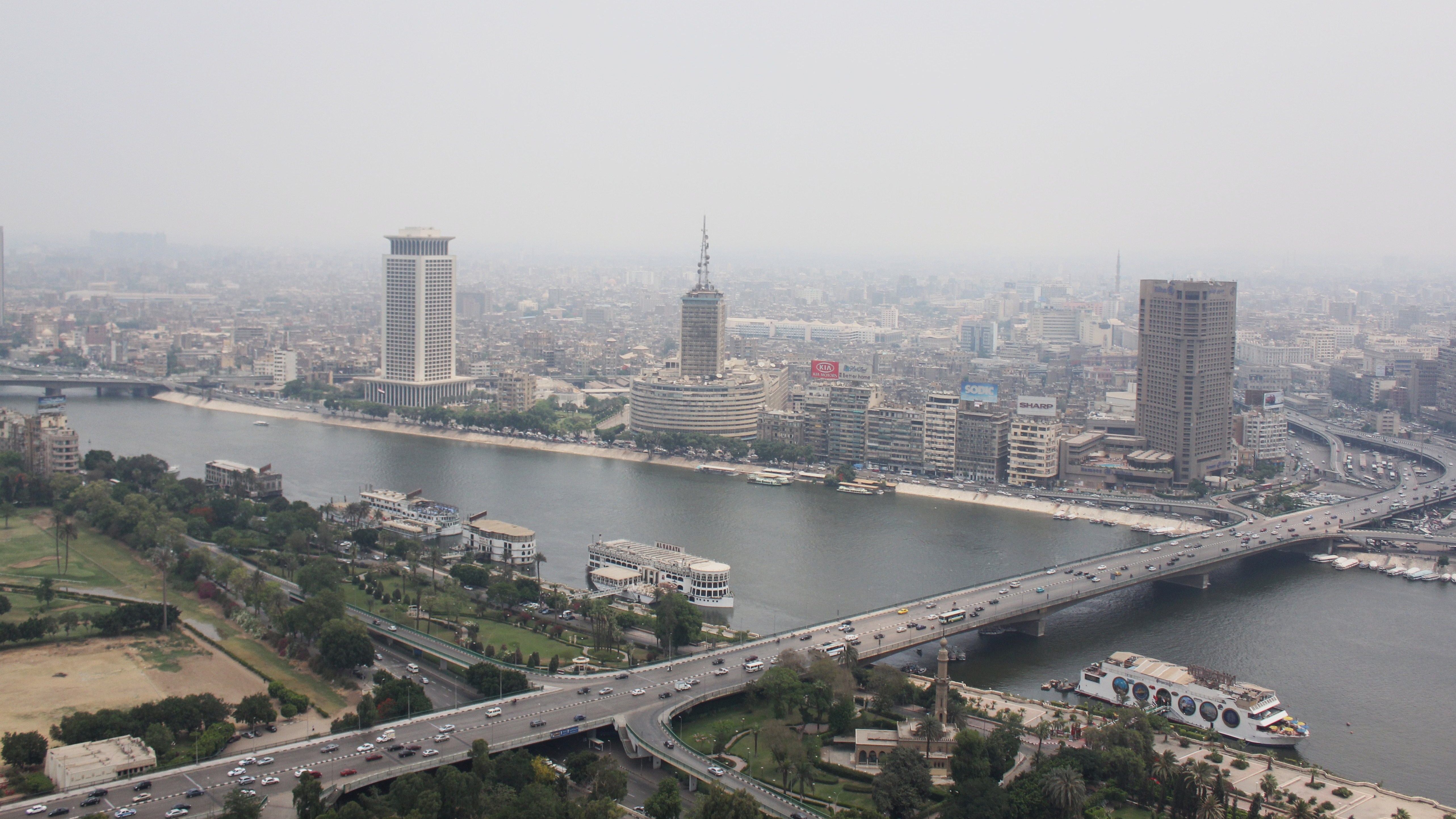BY RANDA EL DEEB
![Garbage flows along the Nile, Egypt's most precious commodity [JOHN CHAPMAN]](http://www.auccaravan.com/wp-content/uploads/2013/05/Water-Pollution-John-Chapman.jpg)
Events heated up in 2010 after countries that share the Nile river basin moved to revise the colonial-era treaties that not only allocate the bulk of the river’s water to Egypt but also, allow Cairo to veto upstream dam projects.
Under the current 1929 agreement, Egypt currently controls 55 billion of the 88 billion cubic meters of water derived from the Nile every year.
But African nations, which have gained independence from colonialism in the past six decades and have undergone population growth, say the agreement needs revising.
And they have taken initiatives to build several dams along the Nile, including one mega dam dubbed the ‘Renaissance Dam (RD)’ in Ethiopia.
Estimated to cost $4.8 billion and generate 5250 MW of electricity, the dam – Egyptians fear – will threaten their country’s only substantial water resource in the region.
Now, Eritrea’s position puts it at loggerheads with other Riparian countries who have challenged Egypt and Sudan for the Nile.
Former foes, Ethiopia and Eritrea, fought a two-year war between 1998 and 2000. According to observes, Eritrea’s statement might lead to growing conflict between the African neighbors.
Ibrahim El Nur, a professor at the political science department, connected Eritrea’s statement to Ethiopia’s continued occupation of Eritrean land despite a verdict by the International Court on their conflagration.
“When it comes to the Nile issue, Eritrea is a minor player and the three major players are Ethiopia which provides 86 percent of the Nile water, and Sudan and Egypt who consume 99 percent of the water provided,” said El-Nur.
The two agreements formulated in 1929 and 1959 had provided Egypt and Sudan or better known as the downstream countries with the largest share of the Nile throughout history. The 1929 treaty signed by the colonizers provided Egypt with veto power over the upstream states.
The second treaty, also formed and signed by the colonizers, granted Egypt and Sudan with the largest share of the river.
Egypt’s Nile share is an essential component for its sustainability especially with the growing population’s increasing Egypt’s need of water.
“NileBasin populations increased five-fold thus the common pool became intensely populated and the fragile non-riparian zones are increasingly integrating into the Nile region adding further pressures,” added El-Nur.
Today, the eight African neighbors better known as the upstream countries are demanding the redistribution of the Nile water.
The Entebbe Agreement, in reponse, was formed and signed by six of the ten nations beginning in 2010. South Sudan said last month it would sign the Agreement.
The agreement between seven of the NileBasin states will advance the upstream countries. On the other hand, both Egypt and Sudan have opposed the agreement which may jeopardize their large share of water.
According to Hamid Ali, professor of Public Policy and Administration, the Eritrean relation with Ethiopia has been on the wrong track and thus this statement will irritate the Ethiopian side into more escalation.
On the question of the building of dams, Hamid says: “Egypt should vigorously engage with Ethiopia in a constructive dialogue and create partnership to avoid its impact on Egypt’s share [of the Nile].”
Following a September 25 visit by Ethiopian Prime Minister Meles Zenawi, the then Egyptian government – after a number of meetings with their Ethiopian counterparts –changed its rhetoric with regard to the Nile water disputes, and is now saying that Ethiopia’s $4.8 billion-project “could be a source of benefit to both countries.”
And will the Ethiopians agree to anything short of the revision of the 82-year-old treaty Egypt is so vehemently adhered to upholding? Last month, Ethiopian officials announced that they would not allow their proposed dam harm Egypt’s interests.
But the Egyptian government could be walking on a tight rope. On one hand, it has to find the means to revitalize an economy not only weakened by the January 25 Revolution but also, by other neighboring Arab revolts in the region as well.
As a result, the Egyptian government’s new economic strategy is now aimed at increasing investments in other NileBasin countries – Ethiopia included – in the Construction, Industrial, and Agricultural sectors respectively.
On the other hand, in order to realize this economic goal and to really begin a new chapter in Ethiopian-Egyptian relations, the Egyptian leadership will need to make concessions with regard to its Nile polic.
While political dialogue was missing during the Mubarak era, experts suggested alternative methods to solve the water issue between the neighboring states.
“The NileBasin countries should think of ways to augment the Nile flow, especially from the White Nile [Uganda],” says Ali.
Ali urges regional financial institutions to invest and provide technology for water conservation and regulation of the NileRiver flow to meet the growing demand for water.
He says this can be achieved through as well through reduction of seepage and evaporation.
